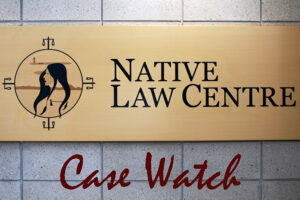Application dismissed. There is no duty to consult between the province and its municipalities about lands being transferred to the Federal government for the purposes of adding to a First Nation reserve.
The Applicants sought to have an Order in Council of the Government of Québec declared invalid on the basis of bad faith or abuse of power by the Québec government. The Order concerns vacant lands located on the territory of the Municipalité Régionale de Comté de Roussillon (“RCM”) and adjacent to the Kahnawake Reserve (the “Lands”), which the Ministère des Transports du Québec (“MTQ”) acquired several years ago to extend a highway. With the extension completed, the Lands were no longer needed for road purposes. The Order transfers the usufruct of the Lands to the Government of Canada for a possible addition to the territory of the Kahnawake Reserve. In the alternative, the Applicants also argued that condition No. 3 of the Order is ambiguous and void, as it has the effect of expanding the Kahnawake Reserve. They claim the Province does not have the legislative authority to create an Indian Reserve.
The Order transfers the usufruct of the Lands free of charge to the federal government for the benefit of the Kahnawake Mohawk Indian Band. Some of the Lands and the extension of the highway were located on the territory of the Seigneurie du Sault-Sault-Louis (SSSL), for which the Mohawks of Kahnawake filed a specific claim in the early 1990’s, alleging that the King of France gave them the territory. Since 2003, this specific claim has been under discussion with the federal government and is still ongoing.
The mechanism for transferring lands of the Québec province in order to reserve them for Indians is regulated under Québec and federal laws. The Minister of Natural Resources and Wildlife first designates the lands, and then the Québec government may “reserve and allot” the lands by adopting an order to transfer, gratuitously, the usufruct of the lands to the Government of Canada, with a view to administering it in trust for the Indian bands. No other legislative condition limits the exercise of the Québec government’s discretion in this regard. The Order, however, is only the first step in an administrative process by which the provincial lands will be added to the Kahnawake reserve as “designated lands” within the meaning of section 2(1) of the Indian Act. The process of creating an Indian reserve or adding to an existing reserve (known as “ATR” – Additions to Reserves) is subject to a specific legislative framework. A federal directive also regulates the ATR process including “an early and healthy dialogue between the First Nation, the public and affected individuals and interest groups to increase awareness and deal with potential issues”. However, “municipal governments do not have a general or unilateral veto over the granting of reserve status” and discussions with municipal governments “should not unreasonably delay the proposal” of an ATR.
The Order is political and therefore a purely administrative decision of the Québec government, or Cabinet, which is the top of the administrative and political power hierarchy. The adoption of the Order is a political decision and carries no obligation of procedural fairness or consultation with regard to the individuals affected. In respect of the autonomy, latitude and discretion enjoyed by the government in this area, any challenge to such a decision can be based only on very limited grounds. In making a political decision, the government cannot act against the law or abuse its discretion. The Order does not contravene any law. As for the rest, the government must answer for its political decisions to the electors and not the courts.


